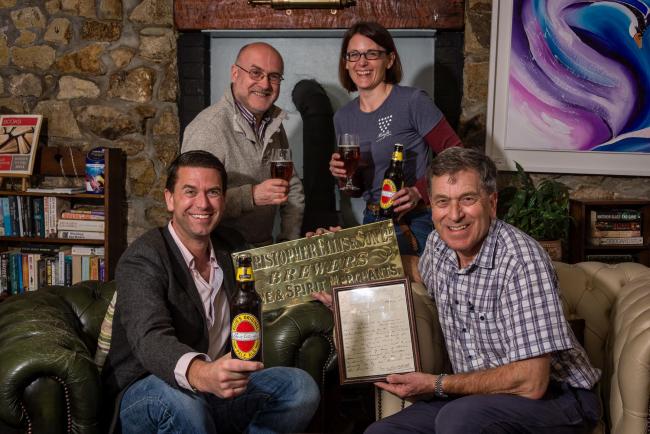Inside the hidden gin distillery in Saltash you've never heard of
By
C.Turner Herald | Posted: April 08, 2017
Video: 2m 6s.
Gin is the tipple exciting everyone's lips these days.
And now you can get your hands on a truly hand crafted gin with a huge Cornish history thanks to Robert Cuffe and John Hall, who have revived the tasty spirit from a 1920s recipe handed down from Rob's grandfather.
Nestled away in an industrial estate in Saltash is Trevethan Gin – the Cornish distillery was embarked on by the duo in a twist of fate.
Having worked together beforehand, keen chemist John mentioned to engineer Rob that he wanted to get into spirit distilling – which is when Rob mentioned that his grandfather, Norman Trevethan, used to make 'bathtub gin' when he was a chauffeur for the Earl and Lady St Germans.
A partnership was struck up by the pair who spent 18 months perfecting Norman's original Cornish recipe before they became fully operational in their industrial unit in October 2015.
Rob, who lives in Plymouth, spent time learning about Norman's recipe from his mum and sister who use to go out picking the botanicals for his gin.
The most impressive part of Trevethan Gin is its story and deep routed Cornish history – to this day, elderflower and gorse flowers are plucked from John's fiancee's farm in Cornwall and the water used in the distilling process comes from a Cornish spring a few miles down the road.
31-year-old John also creates the batches by hand using a huge Portuguese copper still named after his grandmother, Doris.
Now, Trevethan's trade has excelled, with the business partners seeing between 300-350 bottles produced weekly which are shipped across the globe to restaurants and bars as far as Australia and America.
Trevethan Gin is bold in flavour with subtle citrus and floral notes – the recipe includes the usual suspects of juniper, coriander, cassia and angelica along with some less familiar botanicals like cardamom, orange peel, lemon peel and vanilla.
The vanilla gives a soft and oily texture on the pallet and the gin is finished off with the Cornish elderflower and gorse flower.
From the charging of the still, the measuring of the botanicals, right the way through to the filling and labelling of the bottles, it is all done with love within the small scale operation of just five people.
Rob, the youngest grandson of Norman Trevethan, said: "Having a bit of Norman still here [in the recipe] cements the family name in history.
"We wanted the gin process to be very simple – this method has been used for thousands of years.
"Instead of going to an industrial method when we grow we would prefer to use more copper stills and stay true to the product by keeping it organic and independent.
"There are quite a few 'pop up' gins as we call them, which have a sexy name and logo but disappear after five years.
"We're lucky enough to have deep Cornish roots and something traditional."
The craft gin market is growing, 57-year-old Rob explained, and it is their aim to be recognised as one of the top 10 gins in the world and for the brand to stand the test of time.
Future plans for the distillers including launching miniatures of the delightful tipple this summer, as well as setting up a shop on the site where head distiller John can give tours, talks and gin making lessons.
But ultimately, John would love to expand into whiskey, too.
Thanks to its sleek art-deco style branding and of course, the contents inside the 70cl bottle, the likes of Jamie Oliver and St Austell Brewery are stocking and selling the craft gin along with many other eateries and bars.
You can find out where to get your hands on a bottle of Cornish Trevethan Gin at
www.trevethandistillery.com.
http://www.plymouthherald.co.uk/ins...ave-heard-of/story-30253874-detail/story.html
Plymouth gin is well known, and I have visited their distillery, but I never knew there was a Cornish gin! I may treat myself to a bottle if a suitable occasion arises!  One for motor-bike fans:
One for motor-bike fans:
Norman Trevethan












